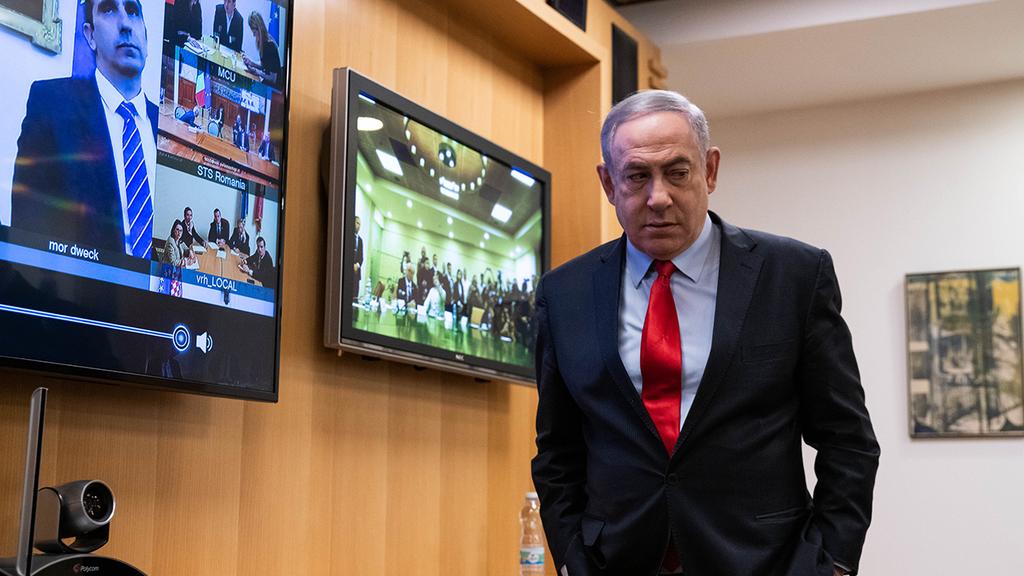Israeli media over the past few weeks has centered around two main issues, each reported on separately: coronavirus and the March 2 election.
It is time for everyone to understand that the former heavily influences the latter.
The government is trying to send the reassuring message that it can control the spread of the virus and continue to allow the economy to grow. Unfortunately, both statements are wishful thinking.
The national healthcare system should be commended for the efforts its employees are making, but an event of such scale should have long ago involved other national agencies.
For example, instead of interviewing patients and slowly mapping all the places that they passed through, the Shin Bet security service - with its great technological capabilities - could have been asked for help.
3 View gallery


Benjamin Netanyahu discusses coronavirus with European leaders, March 9, 2020
(Photo: Shalev Shalom )
Agencies finding it hard to track whether suspected coronavirus carriers were staying in quarantine could have long ago used electronic tagging or another location tracker to keep an eye on them.
As the Magen David Adom emergency service began to collapse under the strain, other rescue organizations, primarily the IDF Medical Corps, should have been called on to help.
Far more dangerous and significant is the financial damage. There is a slowly unfolding economic downward spiral that began with the airlines and hotel industries and is destined to consume more and more companies and sectors along the way.
Not all jobs can be be performed from home and not all Israeli companies work with local suppliers and customers. On the contrary, Israel has exceeded expectations with its international economic ties, an achievement that could very quickly become its Achilles heel.
In any event, the country will soon enter a recession that will manifest as a drop in GDP, increased unemployment and a decline in state revenue – the result of which is an unavoidable economic crisis.
The current government's hands are tied since the emergency measures needed to be taken immediately are not just out of its legal jurisdiction but also require parliamentary approval.
3 View gallery


Benny Gantz and Benjamin Netanyahu hold coalition talks in Jerusalem after the Sept. 2019 election
(Photo: Elad Malka)
As Prime Minister Benjamin Netanyahu likes to say, if steps are not taken to stop the growth of the "fat man" (public sector), the "thin man" (private sector) will continue to shrink and find it harder to carry its corpulent counterpart.
One of the possible measures that could be taken is a temporary cut to public sector spending, mainly for pensions.
But such unpopular legislation requires political consensus, therefore - despite the political horsetrading over coalitions - the two biggest parties Likud and Blue & White must form an ad hoc emergency government to battle the coronavirus.
Whether they then form a special parliamentary committee or choose another route, they must made these decisions quickly, or we will all be sorry.


